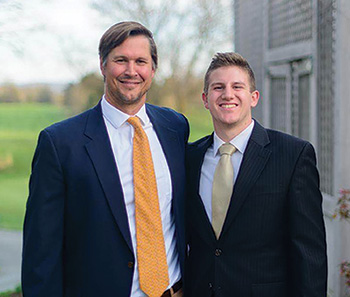 The First Amendment is receiving a massive amount of pushback, not just from a specific group, but by the culture as a whole. Trevin Wax, in his article ‘4 Cultural Trends Leading to the Decline of Religious Liberty’, states:
The First Amendment is receiving a massive amount of pushback, not just from a specific group, but by the culture as a whole. Trevin Wax, in his article ‘4 Cultural Trends Leading to the Decline of Religious Liberty’, states:
A few years ago, a survey showed that nearly 40 percent of Americans believed the First Amendment’s protections “go too far.” That number has decreased in later surveys (thankfully), but it’s still a troubling sign. Meanwhile, we are seeing more and more legal battles against religious people whose convictions are not in line with the ideology of the Sexual Revolution.
Wax then proceeds to explore his theory that such a decline of religious freedom results from four major sources in culture. First, he puts a good portion of the blame on the shift in the mass understanding of religion. He explains that people see religion as relative to the individual, rather than set principles that are applicable to the public.
More and more Americans see religion as something personal and private, a belief that you hold for therapeutic purposes. It’s about feelings that are true for you, not facts that concern the whole world.
The idea that religion is a private affair has existed for a long time, but it has become “the default position” on religion in recent years—to the point that religious people have to make a case for why religion should matter in the public square or in the realm of politics.
Over time, this trend leads to less patience with people who believe that religion affects all of their decisions. The more devout you are in public, the more strange you seem in a society where religion is pushed to periphery of private prayer or self-fulfillment.
Second, he expounds the mistake people have made in defining religion. He states that the words ‘religion’ and ‘worship’ have become interchangeable, thus confusing the idea of what ‘freedom of religion’ is.
…it’s been interesting to see how “freedom and worship” and “freedom of religion” are used interchangeably, as if they are the same thing. The First Amendment guarantees the “free exercise of religion” not the “freedom to worship as you please.” Or, to make the point clearer, we should say freedom of worship comes under the broader umbrella of freedom of religion.
Many Americans believe that as long as churches are free to teach and preach what they want, we have freedom of religion in this country. But this diminishment of freedom to a “worship service” is very different from the freedom to live out one’s religious convictions in everyday life. It walls off religion and consigns it to rituals and values that are personal and private…
Third, Wax sources the decline in the number of people who claim to be religious as part of the problem. For those who do not have strong religious convictions, it is hard to comprehend the importance of religious or strongly held public beliefs.
Non-religious people may have a more difficult time understanding the depth of these convictions and the sensibility of religious conscience. It’s interesting to see secular journalists write about religious people as if they can “prod them along” to change deeply held beliefs about marriage, or the exclusivity of their religious truth claims, and so on.
Last but not least, Wax states that the Sexual Revolution is greatly accountable for a loss of reverence for the First Amendment. The movement has created its own sets of morals and principles which have made people question and even redefine traditional, foundational, religious values.
The Sexual Revolutionaries offer different answers to those questions than do most religious people. For many today, traditional notions of sexual sin are not problematic, but the very notion of sin in sexuality is the sin from which we need deliverance. Repression is bad; liberation is good.
But Christianity has a different set of views and norms when it comes to channeling sexual expression in ways that maximize human flourishing. The Sexual Revolution’s ideology must resist Christianity in order for all (or at least most) sexual behavior to be treated as “normal,” and equally true and good.
The accelerated and more aggressive promotion of the Sexual Revolution throughout society, and the concurrent push to erase the Judeo-Christian fingerprint on US social norms and laws, should prompt us to reflect on what is more likely to bless society: the moral logic and outworking of biblical principles and the Gospel of Jesus Christ – or that of the Sexual Revolution and its idolization of the individual?
Having a robust grasp of the Christian worldview and its implications, for ourselves, our neighbor, and society as a whole, is essential. Increasingly, Christians must explain the coherent framework of their beliefs to a society that grows increasingly unfamiliar with or even hostile to biblical principles.
Americans continue to enjoy considerable freedom. As long as that endures, we would do well to boldly and persistently advocate for a robust First Amendment, with its wonderful protections of speech, religion, and the press. In doing so, Christians are protecting men and women from any potential tyranny of the majority, known to be fickle, as well as the potential for over-reach by the State.
The First Amendment was an extraordinary stroke of political genius that set the stage for the diversity of perspectives we enjoy in the United States today. Strengthening its protections, while fostering spiritual and moral health through society, would greatly bless this country.



